
Find Help
More Items From Ergsy search
-

Is there any scientific evidence that links paracetamol use to autism?
Relevance: 100%
-

Is paracetamol linked to autism?
Relevance: 71%
-

Is there any risk of using paracetamol outside of pregnancy with regard to autism?
Relevance: 67%
-
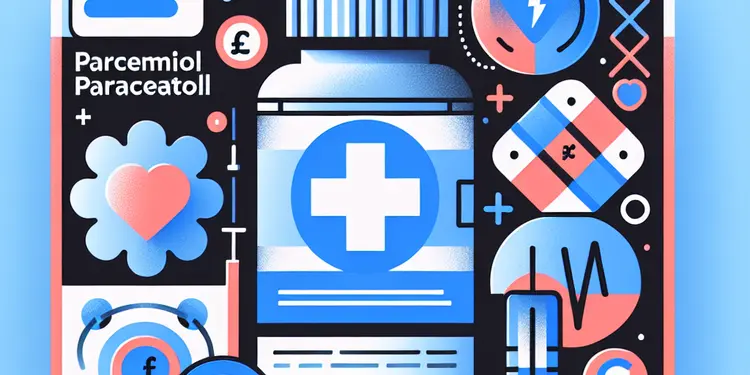
Why is there concern about paracetamol and autism?
Relevance: 64%
-
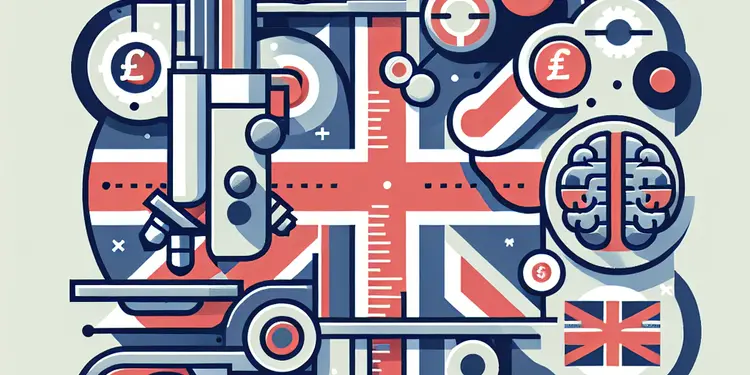
What can cause autism, if not paracetamol?
Relevance: 52%
-

What are the limitations of studies examining paracetamol use and autism?
Relevance: 43%
-
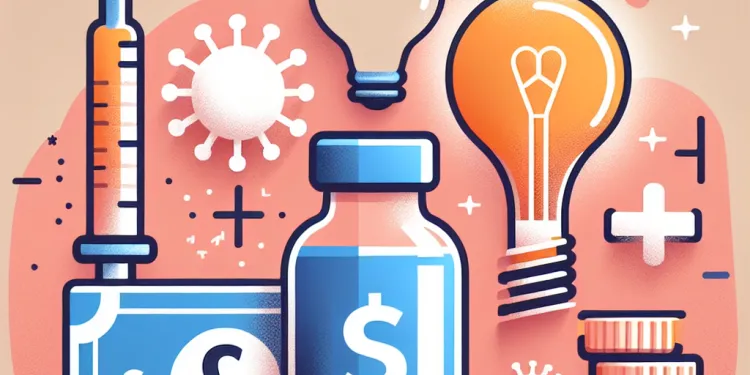
Are vaccines linked to autism?
Relevance: 39%
-

Have any major health organizations advised against using paracetamol during pregnancy due to autism concerns?
Relevance: 39%
-
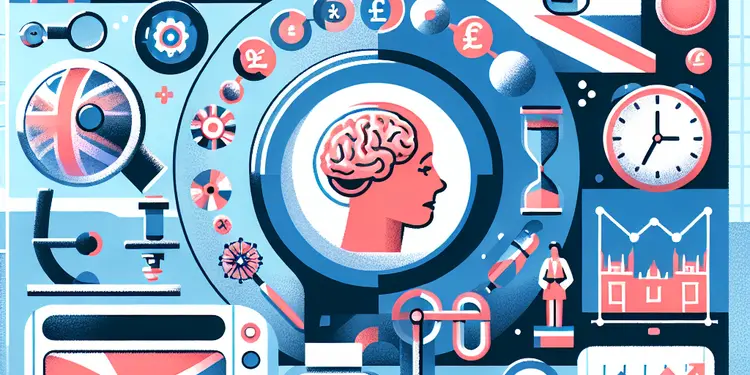
Is there scientific evidence linking menopause to dementia?
Relevance: 39%
-

What is a common use of paracetamol?
Relevance: 38%
-

Can Paracetamol be used in pregnant women?
Relevance: 37%
-

Has paracetamol been linked to other developmental issues besides autism?
Relevance: 37%
-

Can hypothesized variants be used in scientific modeling?
Relevance: 36%
-
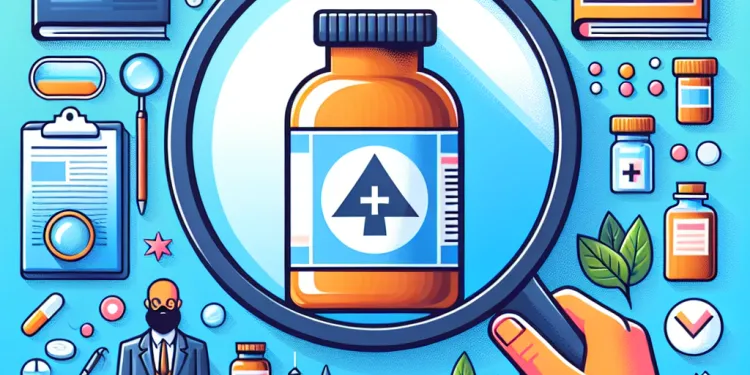
Are there any scientific studies supporting homeopathy?
Relevance: 34%
-

What is Autism?
Relevance: 34%
-

What causes autism?
Relevance: 33%
-

What is Paracetamol?
Relevance: 32%
-

What is Paracetamol?
Relevance: 32%
-
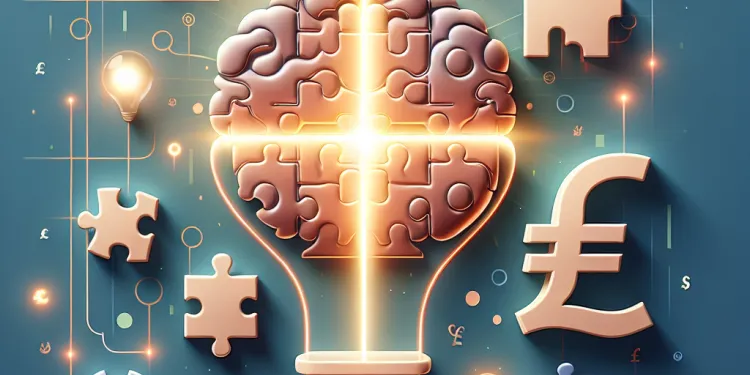
Can autism be cured?
Relevance: 32%
-

Is there an autism test?
Relevance: 32%
-
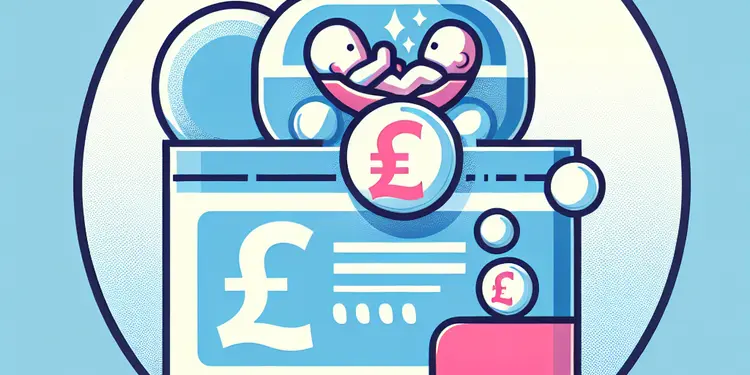
Have there been any recent changes in guidelines regarding paracetamol use and pregnancy?
Relevance: 31%
-

How is autism diagnosed?
Relevance: 30%
-

Is Paracetamol the same as Aspirin?
Relevance: 30%
-

What are some common therapies for autism?
Relevance: 30%
-

What are the signs of autism?
Relevance: 30%
-
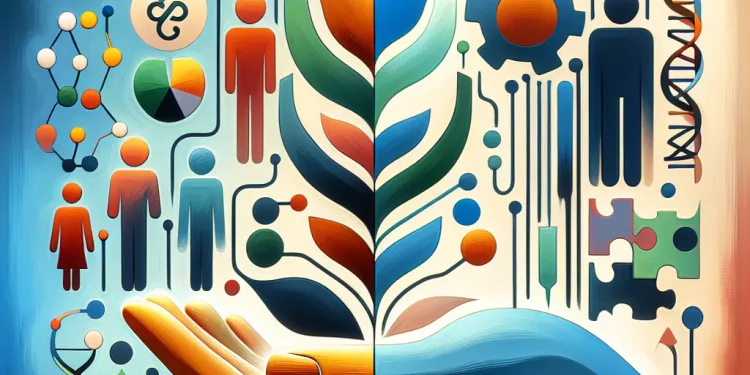
Is there a genetic component to autism?
Relevance: 30%
-

Does Paracetamol reduce inflammation?
Relevance: 30%
-

What should pregnant individuals consider when taking paracetamol?
Relevance: 29%
-

What is the autism spectrum?
Relevance: 29%
-

How prevalent is autism?
Relevance: 29%
-
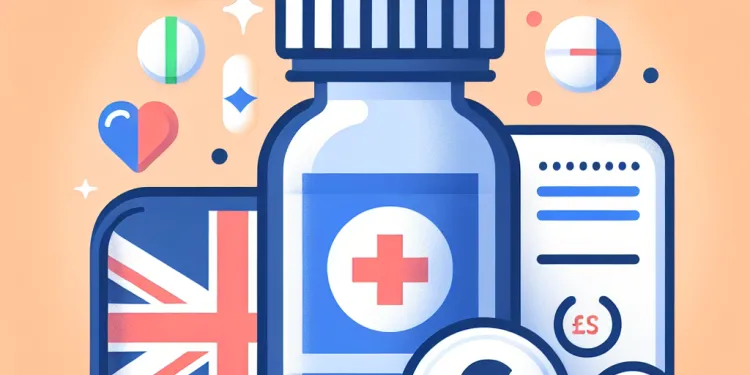
What are the side effects of Paracetamol?
Relevance: 29%
-

Autism: Graeme's story | NHS
Relevance: 28%
-

Autism - My Story - Adrian | NHS
Relevance: 28%
-
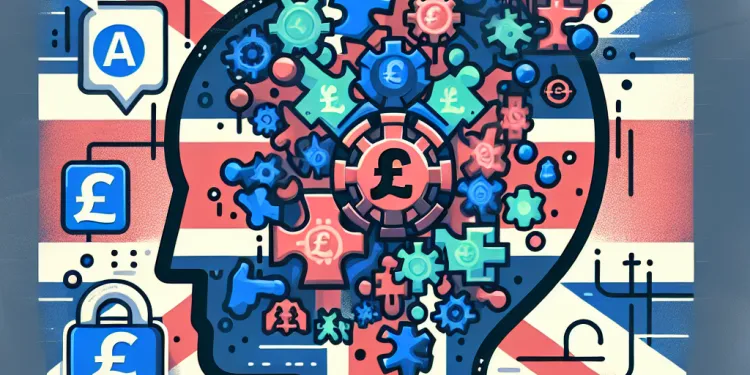
Can adults have autism?
Relevance: 28%
-

Is it safe to take Paracetamol with Ibuprofen?
Relevance: 28%
-

How does autism affect communication?
Relevance: 28%
-

Autism - My Story - Rosalind | NHS
Relevance: 28%
-

What kind of studies are conducted to investigate links between medications and autism?
Relevance: 28%
-

What advice is available for parents concerned about autism risks?
Relevance: 28%
-
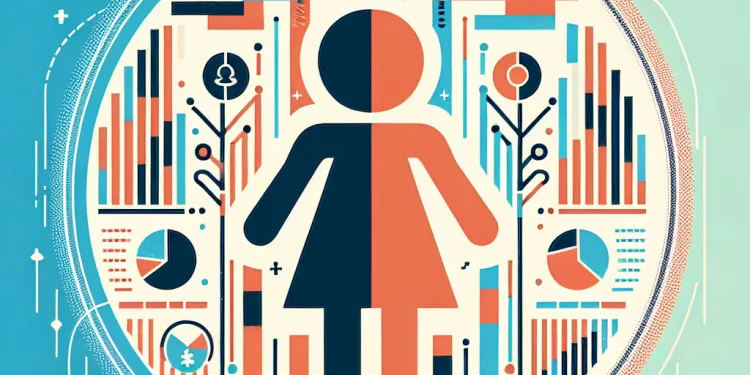
Is autism more common in boys or girls?
Relevance: 27%
Introduction
Paracetamol, also known as acetaminophen, is a widely used medication in the UK for relieving pain and reducing fever. It is generally considered safe for use during pregnancy and is often recommended when non-medication approaches do not suffice. However, recent discussions have raised questions about a potential link between paracetamol use and autism spectrum disorder (ASD). This article examines the scientific evidence concerning this potential association.
Understanding Autism Spectrum Disorder
Autism spectrum disorder (ASD) is a developmental condition characterised by challenges in communication, social interaction, and a tendency towards repetitive behaviours. The causes of ASD are complex and not fully understood, involving a combination of genetic, environmental, and possibly prenatal factors. The rising prevalence of ASD in recent decades has prompted research into potential contributing factors, including medication use during pregnancy.
Scientific Studies on Paracetamol and Autism
A number of scientific studies have explored whether there is a link between paracetamol use during pregnancy and the risk of autism in children. Some observational studies have suggested an association between prolonged use of paracetamol during pregnancy and an increased risk of developing ASD or other neurodevelopmental disorders. However, these studies have limitations, such as reliance on self-reported data and potential confounding factors, which can influence the outcomes.
Understanding the Evidence
It is important to note that observational studies can only show associations and cannot establish causation. In most of these studies, factors such as the underlying condition for which paracetamol was taken, dosage, duration of use, and genetic predispositions are not fully accounted for. This makes it challenging to conclude definitively whether paracetamol itself contributes to an increased risk of autism.
Current Recommendations
Currently, health authorities, including the UK’s NHS, continue to advise that paracetamol is safe for use during pregnancy when used appropriately. It remains important to follow medical advice regarding its use and to reserve it for times when it is truly necessary. Women who are pregnant or planning to become pregnant should consult their healthcare provider to weigh the risks and benefits of using paracetamol or any medication.
Conclusion
In summary, while some studies suggest a potential link between paracetamol use during pregnancy and autism, there is no conclusive scientific evidence confirming a direct causal relationship. Ongoing research is needed to fully understand these potential connections. Meanwhile, pregnant women should seek medical guidance when considering paracetamol usage to ensure both their safety and that of their future children.
Introduction
Paracetamol is a medicine that helps with pain and fever. Many people use it in the UK. It is usually safe to take during pregnancy. Some people now wonder if taking paracetamol could be linked to autism in children. Here, we look at the science to see if there is a link.
What is Autism?
Autism is when a person finds it hard to talk and interact with others. They might also do certain things repeatedly. The reasons for autism are not fully known. It is thought to be caused by a mix of genes and things in the environment. More children are being diagnosed with autism, so scientists are studying why this happens.
Research on Paracetamol and Autism
Scientists have done studies to see if taking paracetamol during pregnancy is linked to autism in children. Some studies say there might be a link, but these studies have problems. For example, they rely on people remembering what they took and do not consider other factors.
Looking at the Evidence
These studies can only show if there might be a link. They cannot prove that paracetamol causes autism. Other things, like why the person took paracetamol, how much they took, and their genes, are also important. This makes it hard to say for sure if paracetamol is the reason.
What Experts Say
Health experts, like the NHS in the UK, say paracetamol is safe during pregnancy if used correctly. It is important to follow doctor’s advice and only use it when needed. Pregnant women should talk to their doctor about using any medicine to be safe.
Conclusion
To sum up, some studies suggest a link between paracetamol and autism, but they do not prove it. More research is needed. Pregnant women should ask their doctor for advice if they are thinking about using paracetamol, to keep themselves and their babies safe.
Frequently Asked Questions
Is there scientific evidence linking paracetamol use to autism?
As of now, there is no conclusive scientific evidence directly linking paracetamol use to autism.
Have any studies suggested a link between paracetamol use and autism?
Some observational studies have suggested a potential association, but they do not establish a causal link.
Are there alternative medications considered safer than paracetamol for pregnant women?
Pregnant women should consult healthcare professionals for recommendations specific to their situation.
What is paracetamol commonly used for?
Paracetamol is commonly used to relieve pain and reduce fever.
Is paracetamol safe for children?
Paracetamol is generally considered safe for children when used as directed by a healthcare provider.
What are the side effects of paracetamol?
Paracetamol is usually well-tolerated, but overuse can lead to liver damage.
Why is paracetamol prescribed during pregnancy?
Paracetamol is often offered during pregnancy to manage mild to moderate pain and fever.
Do healthcare authorities recommend avoiding paracetamol during pregnancy?
Healthcare authorities generally consider paracetamol to be safe during pregnancy when used correctly.
Has autism always been a concern with paracetamol use?
Concerns about a potential link are relatively recent and arise from studies with limited evidence.
What is the prevalence of autism worldwide?
Autism prevalence varies, but estimates suggest approximately 1 in 160 children worldwide have an autism spectrum disorder.
What causes autism?
The exact cause of autism is unknown, but genetic and environmental factors are thought to play roles.
Have regulatory bodies issued warnings about paracetamol and autism?
Regulatory bodies have not issued specific warnings linking paracetamol to autism due to lack of conclusive evidence.
What should parents do if concerned about autism risk from paracetamol?
Parents should discuss any concerns with healthcare professionals to get personalized medical advice.
Can autism be diagnosed before birth?
Autism cannot be diagnosed before birth; it is generally identified in early childhood.
What research is ongoing about paracetamol and autism?
Research continues to explore any potential links, with ongoing studies aiming to provide clearer answers.
What is the safe dosage of paracetamol for pregnant women?
Pregnant women should adhere to recommended dosages and consult a healthcare provider before taking paracetamol.
Are there any known genetic factors for autism?
Yes, genetic factors play a significant role in autism, though specific causes vary.
Is there an increased risk of autism due to environmental factors?
Some environmental factors might contribute to autism risk, but more research is needed to understand their impact.
Do vaccines cause autism?
Scientific research has consistently shown that vaccines do not cause autism.
Should pregnant women avoid all medications to prevent autism risk?
Pregnant women should only take medications as advised by their healthcare providers, weighing risks and benefits.
Does paracetamol cause autism? What does science say?
Researchers want to know if taking paracetamol (a medicine for pain and fever) is linked to autism (a brain condition). Science studies try to find out, but it is hard to know for sure.
If you are worried, it is a good idea to ask a doctor or a nurse. You can also use tools like picture charts to help understand better.
Right now, scientists have not found clear proof that using paracetamol causes autism.
Is there a connection between using paracetamol and autism?
Scientists have done studies to find if taking paracetamol can be linked to autism. Autism is when a person thinks and learns in a different way.
If you want help to understand, you can:
- Ask a friend or family member to explain it to you.
- Use apps or tools that read the text out loud.
- Watch videos for more information about paracetamol and autism.
Some studies have noticed a possible connection, but they do not prove that one thing causes the other.
Are there safer medicines than paracetamol for pregnant women?
If you are pregnant and need medicine, talk to your doctor. Some medicines can be safer than others. Your doctor can help you choose the best one for you and your baby.
Here are some tips to help:
- Ask lots of questions about the medicine.
- Write down what your doctor says, so you remember.
- Use pictures or a chart if it helps you understand better.
If you are going to have a baby, talk to a doctor or nurse. They can tell you what is best for you.
What do people use paracetamol for?
Paracetamol is a medicine. It helps when you have pain or a fever. Pain is when something hurts. Fever is when you feel hot because you are sick.
People take paracetamol when they have:
- Headaches
- Toothaches
- A fever from a cold
If you find it hard to take medicine, ask an adult for help. They can show you how to take it.
Paracetamol helps to stop pain and makes fevers go down.
Can children take paracetamol safely?
Yes, children can take paracetamol, but it is important to give them the right amount. This will keep them safe and help them feel better.
Always check the instructions on the bottle or box. You can also ask a doctor or a pharmacist if you are not sure.
Use a measuring spoon or cup to give the right dose. Do not use a kitchen spoon.
If you have any questions, it is a good idea to talk to someone who knows a lot about medicine.
Paracetamol is usually safe for kids when a doctor says it's okay to use.
What happens if paracetamol makes you feel unwell?
When you take paracetamol, sometimes it can make you feel not very good. Here are some things that can happen:
- Your tummy might hurt.
- You might feel sick.
- You might get a rash on your skin.
If you feel any of these things after taking paracetamol, talk to a grown-up or a doctor. They can help you.
Using pictures or a feelings chart can also help to understand and talk about how you feel.
Paracetamol is safe for most people, but taking too much can hurt your liver.
Why do doctors give paracetamol to pregnant women?
Paracetamol is a medicine. Doctors give it to pregnant women to help with pain and fever. It is safe for the baby if you take it just like the doctor says. If you are pregnant and need paracetamol, ask your doctor how much to take. Always follow their advice. Here are some tips if you find reading hard: - Ask someone you trust to read with you. - Use a finger or ruler to keep your place when reading. - Look up pictures or videos about paracetamol. Remember, it is important to always talk to your doctor before taking any medicine.Paracetamol is a medicine that is safe to take when you are pregnant. It helps to stop small pains or a fever.
Should pregnant people stay away from paracetamol?
Paracetamol is a medicine that helps with pain and fever.
If you are pregnant, ask your doctor or a nurse if it is safe to take paracetamol. They can give you the best advice.
It's important to follow what the doctor says to keep you and your baby safe.
You can use a calendar or set reminders to keep track of any medicine you take.
Doctors say taking paracetamol is usually safe when you are pregnant if you use it the right way.
Has paracetamol always been linked to autism?
People are worried about a possible link. This idea is new and comes from studies that don't have a lot of proof.
How many people have autism around the world?
Autism affects many children. About 1 in 160 children around the world have autism.
What makes people have autism?
Doctors don't know what causes autism. It might be because of genes or things around us.
Have health groups given warnings about paracetamol and autism?
Paracetamol is a medicine for pain and fever.
Some people worry it might be linked to autism.
Health groups watch over medicines to keep us safe.
They might give warnings if they find a problem.
If you have questions, ask a doctor or pharmacist.
For help with reading, use tools like a read-aloud app or ask someone to help you.
Experts have not said that taking paracetamol is linked to autism because there is not enough proof.
What can parents do if they are worried about paracetamol and autism?
Are you a mom or dad worried about giving your child paracetamol? Do you think it might be linked to autism? Here are some simple steps you can take to feel better:
- Talk to a Doctor: Speaking to a doctor can help. They know a lot about health and medicine. They can tell you if paracetamol is safe.
- Read Reliable Information: Look for trustworthy websites or books to learn more. Make sure the information comes from health experts.
- Ask Questions: It's okay to ask questions and talk about your worries with a nurse or doctor.
- Some Tools Can Help: You can use things like picture charts or special apps to help understand what you read.
Remember, you are not alone. It's good to share your concerns with a health expert who can help you decide what is best for your child.
If parents have worries, they should talk to a doctor or nurse. They can give advice just for you and your child.
Can doctors tell if a baby has autism before it is born?
Doctors can't tell if a baby has autism before they are born. Usually, we find out if a child has autism when they're little.
What are scientists studying about paracetamol and autism?
People are still studying if there are any links. They are doing more tests to find better answers.
How much paracetamol is safe for pregnant women?
Paracetamol is medicine for pain or fever. If you are pregnant, it is important to know how much is safe to take. **Ask a Doctor:** Talk to your doctor before taking any medicine. They will tell you how much is safe. **Read the Bottle:** Look at the label on the bottle. It tells you how much to take and when. **Take Less:** Do not take too much. Only take what the doctor or label says is safe. **Support:** If you find reading hard, ask someone to help you read the label. **Use Tools:** You can use apps to read out loud or big writing on your phone to help understand the label. Remember, it is always best to ask for help if you are unsure.If you are pregnant, you should take the right amount of medicine and talk to a doctor before using paracetamol.
Do genes play a part in autism?
Scientists think some genes might have a role in autism. Genes are like instructions in our bodies. They help decide how we look and grow. If genes change or don't work right, they might be linked to autism.
If you want help to understand this better, you can:
- Use a tool that reads text out loud.
- Ask a friend or family member to explain it.
- Look for videos about genes and autism for kids.
Yes, autism can be affected by genes. This means it can run in families, but the exact reasons are different for each person.
Can things around us make autism more likely?
Here are some tips that might help:
- Look at pictures or videos about autism.
- Ask someone to explain big words.
- Use apps or websites made for easy reading.
We are not sure why some people have autism. Things around us, called environmental factors, might play a part. Scientists need to study more to learn how these things affect autism.
Do vaccines cause autism?
No, vaccines do not cause autism. Vaccines help keep us healthy by stopping diseases.
If you have questions, talk to a doctor or a nurse. They can help explain vaccines in a simple way.
If reading is hard, ask someone to read with you. You can also use a dictionary to look up hard words.
Scientists have studied vaccines a lot. They found that vaccines do not cause autism.
Should pregnant women stop taking all medicines to keep their baby safe from autism?
It's important to talk to a doctor.
Some medicines are safe, but some may not be. A doctor can help decide what is best.
If you are worried, ask a doctor or nurse for help.
If you are pregnant, only take medicine if your doctor says it is okay. The doctor will help you decide what is safe.
Useful Links
Have you found an error, or do you have a link or some information you would like to share? Please let us know using the form below.
-->
This website offers general information and is not a substitute for professional advice.
Always seek guidance from qualified professionals.
If you have any medical concerns or need urgent help, contact a healthcare professional or emergency services immediately.
Some of this content was generated with AI assistance. We’ve done our best to keep it accurate, helpful, and human-friendly.
- Ergsy carfully checks the information in the videos we provide here.
- Videos shown by Youtube after a video has completed, have NOT been reviewed by ERGSY.
- To view, click the arrow in centre of video.
- Most of the videos you find here will have subtitles and/or closed captions available.
- You may need to turn these on, and choose your preferred language.
- Go to the video you'd like to watch.
- If closed captions (CC) are available, settings will be visible on the bottom right of the video player.
- To turn on Captions, click settings .
- To turn off Captions, click settings again.
More Items From Ergsy search
-

Is there any scientific evidence that links paracetamol use to autism?
Relevance: 100%
-

Is paracetamol linked to autism?
Relevance: 71%
-

Is there any risk of using paracetamol outside of pregnancy with regard to autism?
Relevance: 67%
-

Why is there concern about paracetamol and autism?
Relevance: 64%
-

What can cause autism, if not paracetamol?
Relevance: 52%
-

What are the limitations of studies examining paracetamol use and autism?
Relevance: 43%
-

Are vaccines linked to autism?
Relevance: 39%
-

Have any major health organizations advised against using paracetamol during pregnancy due to autism concerns?
Relevance: 39%
-

Is there scientific evidence linking menopause to dementia?
Relevance: 39%
-

What is a common use of paracetamol?
Relevance: 38%
-

Can Paracetamol be used in pregnant women?
Relevance: 37%
-

Has paracetamol been linked to other developmental issues besides autism?
Relevance: 37%
-

Can hypothesized variants be used in scientific modeling?
Relevance: 36%
-

Are there any scientific studies supporting homeopathy?
Relevance: 34%
-

What is Autism?
Relevance: 34%
-

What causes autism?
Relevance: 33%
-

What is Paracetamol?
Relevance: 32%
-

What is Paracetamol?
Relevance: 32%
-

Can autism be cured?
Relevance: 32%
-

Is there an autism test?
Relevance: 32%
-

Have there been any recent changes in guidelines regarding paracetamol use and pregnancy?
Relevance: 31%
-

How is autism diagnosed?
Relevance: 30%
-

Is Paracetamol the same as Aspirin?
Relevance: 30%
-

What are some common therapies for autism?
Relevance: 30%
-

What are the signs of autism?
Relevance: 30%
-

Is there a genetic component to autism?
Relevance: 30%
-

Does Paracetamol reduce inflammation?
Relevance: 30%
-

What should pregnant individuals consider when taking paracetamol?
Relevance: 29%
-

What is the autism spectrum?
Relevance: 29%
-

How prevalent is autism?
Relevance: 29%
-

What are the side effects of Paracetamol?
Relevance: 29%
-

Autism: Graeme's story | NHS
Relevance: 28%
-

Autism - My Story - Adrian | NHS
Relevance: 28%
-

Can adults have autism?
Relevance: 28%
-

Is it safe to take Paracetamol with Ibuprofen?
Relevance: 28%
-

How does autism affect communication?
Relevance: 28%
-

Autism - My Story - Rosalind | NHS
Relevance: 28%
-

What kind of studies are conducted to investigate links between medications and autism?
Relevance: 28%
-

What advice is available for parents concerned about autism risks?
Relevance: 28%
-

Is autism more common in boys or girls?
Relevance: 27%


